Science fiction and fantasy are rich in characters who deserve (and sometimes find) rewarding personal relationships. There are also characters that other characters should never, ever date. Ever. Here are five fictional characters from whom all prospective love interests should run screaming…
Sparks Dawntreader Summer — The Snow Queen and The Summer Queen
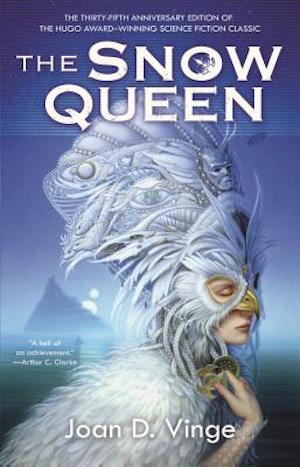
Although Sparks is but a supporting character in Joan D. Vinge’s The Snow Queen (and the 1991 sequel The Summer Queen,) the love that protagonist Moon Dawntreader Summer feels for her cousin Sparks compels her to try to save him from Arienrhod, the Snow Queen. How lamentable, therefore, that close examination of Sparks reveals no redeeming qualities beyond a certain physical attractiveness. The tantrum Sparks throws when he learns that he is not Seer material foreshadows the eagerness with which he embraces both the decadence of his world’s planetary capital, Carbuncle, and Moon’s biological mother (or, depending how you look at it, sister) Arienrhod.
Moon moves heaven and Earth for Sparks. She does not ask if he’s worth it. For his part, he never does anything to prove his worth.
Indeed, one way of looking at the sequel, The Summer Queen, is that it’s Vinge’s way of rescuing Moon from her loser boyfriend. Granted, Vinge did it by sending Moon into the arms of lugubrious mope BZ Gundhalinu, but Gundhalinu at his emo worst is much better boyfriend material than abusive, sulky Sparks (better by orders of magnitude).
***
Nash Hudson — My Soul to Take
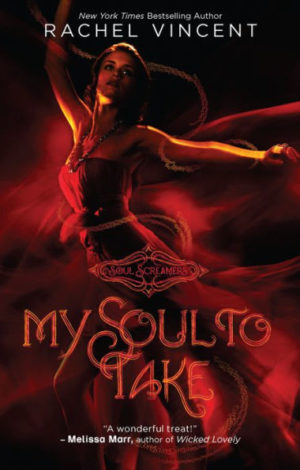
At first, hunky Nash Hudson— of Rachel Vincent’s Soul Screamers series, starting with My Soul to Take (2009)—appears to offer beleaguered protagonist Kaylee Cavanaugh a welcome distraction from personal bereavement and the disquieting revelation that Kaylee is a harbinger of death known as a bean sídhe. Nash is charming and attractive, which is enough to persuade Kaylee to ignore obvious warnings (not so much alarm bells as shrieking klaxons). In Kaylee’s defense, Nash is very good looking and not at all put off by Kaylee’s prudish ways.
Nash’s occult drug habits are bad enough but what finally tips the balance against him is Kaylee’s discovery that part of the reason Nash doesn’t mind their limited sex life is because he knows—and did not mention to Kaylee—that from time to time Kaylee is unwittingly possessed in her sleep by a demon, who is considerably more adventurous than Kaylee. This is enough for Kaylee to kick Nash to the curb (though that doesn’t mean she thinks it’s OK for him to date other girls…)
***
Dominic Flandry — Technic History series
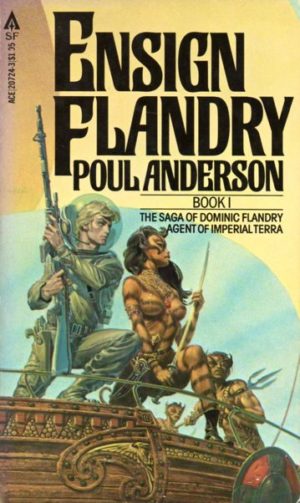
Dominic Flandry appears in Poul Anderson’s Technic History series, including Agent of the Terran Empire (1965), Flandry of Terra (1965), Ensign Flandry (1966), and sundry other works. Flandry is a fine fellow if what you need is a highly motivated, crafty cad willing to do whatever it takes to keep the corrupt Terran Empire going just a little longer. If one is looking for boyfriend material, look elsewhere.
Flandry’s interest in individual women is quite utilitarian and primarily short term. Those with whom he might consider a long-term relationship will inevitably discover that courting Flandry means embracing death… thanks to a vindictive psionic ex-lover, Flandry is cursed to “never get the one (Flandry wants) in (his) heart.” Whether the curse has real power behind it is an open question, but Flandry’s willingness to put the women he genuinely loves in harm’s way suggests that it does.
Flandry is only a supporting character in The Game of Empire (1985), in which he surrenders centre stage to Diana, his illegitimate daughter. A daughter whom Flandry has failed to recognize or support. That’s right! Flandry isn’t just a bad boyfriend—he’s also a deadbeat dad.
***
The Lady — The Black Company
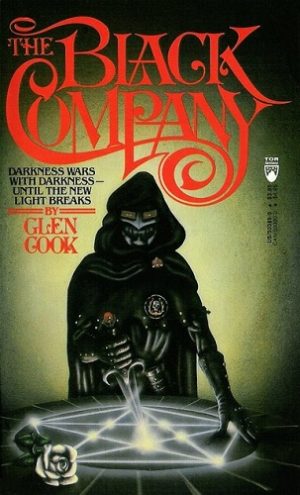
It is a good thing that Glen Cook’s Black Company relies on Croaker for his physician’s skills and talents as annalist and not as a romantic advisor. If The Black Company, (1984), Shadows Linger (1984), and The White Rose (1985) are anything to go by, Croaker has terrible taste in girlfriends. The focus of his romantic musings is generally known as the Lady, or to put it another way, the dread sorceress who has subjugated a fair fraction of her continent as well as the most powerful mages who have crossed her path. Worse yet, he manages to catch the world-conquering dark lady’s eye, ensuring that his mercenary company’s fate is inextricably entangled with an arcane figure whose life is an endless series of deadly conflicts with beings almost as terrifying as she is.
Croaker is clearly a man who has clearly never heard any variation of the curse “May you come to the attention of powerful people.” Or, apparently, any exhortation not to flirt with Sauron or his local equivalent.
***
Elric of Melniboné
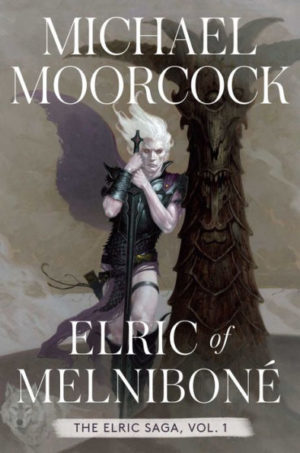
Elric of Melniboné’s adventures are documented in Michael Moorcock’s Elric of Melniboné and Other Stories (2013), Elric: The Fortress of the Pearl (2013), Elric: The Sailor on the Seas of Fate (2013), Elric: The Sleeping Sorceress (2013), Elric: The Revenge of the Rose (2014), Elric: Stormbringer! (2014), and Elric: The Moonbeam Roads (2014). Elric is the final emperor of ancient Melniboné, a once-great land of sorcery sliding into decadent irrelevance. Although physically weak, Elric is adept in the use of drugs and dark sorcery, on top of which he has something that by Melniboné’s standards qualifies as a rudimentary conscience, a quality almost unheard of on the Dragon Isle.
You might think that having a conscience would be a good thing (I mean, Flandry doesn’t, not really, and look what he manages to justify to himself). Alas, it turns out that having a conscience is not as important as having decent judgment. Elric’s judgment is questionable at best. Armed with his trusty demonic sword of unparalleled evil, Stormbringer, Elric sets out to confront challenges head on. The consequence of this hobby is the horrific deaths of his friends, the woman he loves, and everyone else unfortunate enough to share his world. But Elric means well, in his way.
***
Perhaps I err. It could be there are love interests even more ill-advised than the ones listed above. Feel free to list your candidates in comments below.
In the words of Wikipedia editor TexasAndroid, prolific book reviewer and perennial Darwin Award nominee James Davis Nicoll is of “questionable notability.” His work has appeared in Publishers Weekly and Romantic Times as well as on his own websites, James Nicoll Reviewsand the Aurora finalist Young People Read Old SFF (where he is assisted by editor Karen Lofstrom and web person Adrienne L. Travis). He is a four-time finalist for the Best Fan Writer Hugo Award and is surprisingly flammable.










